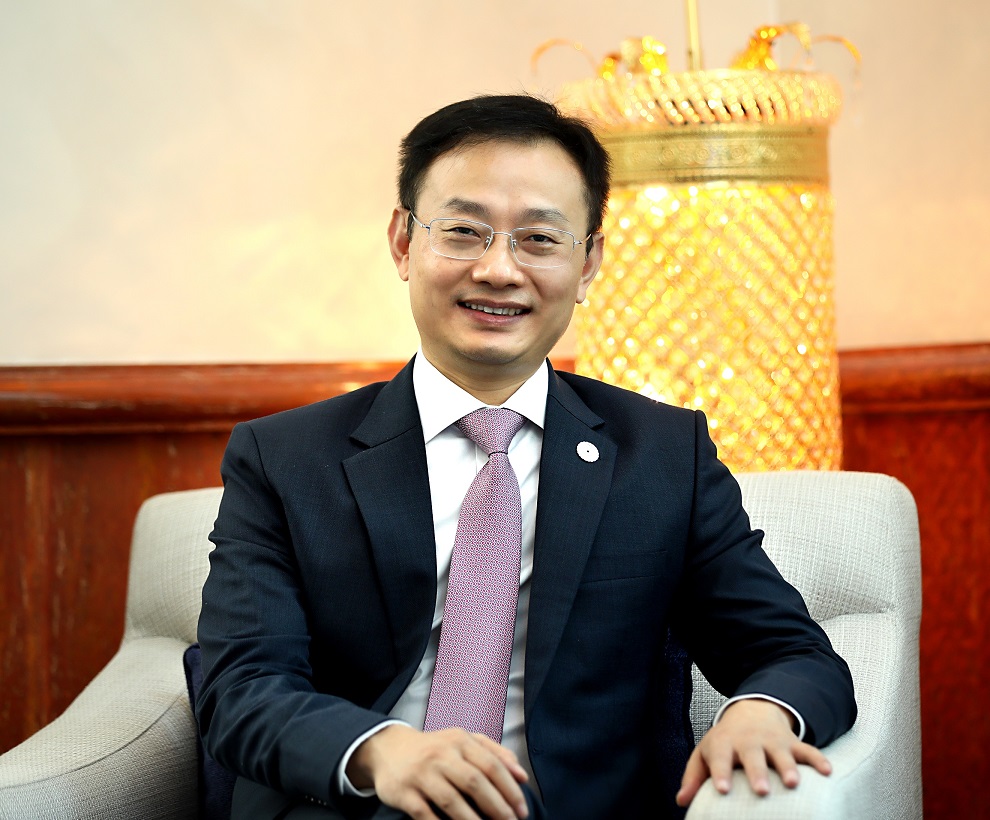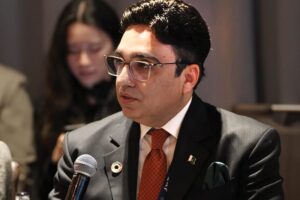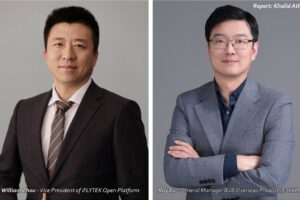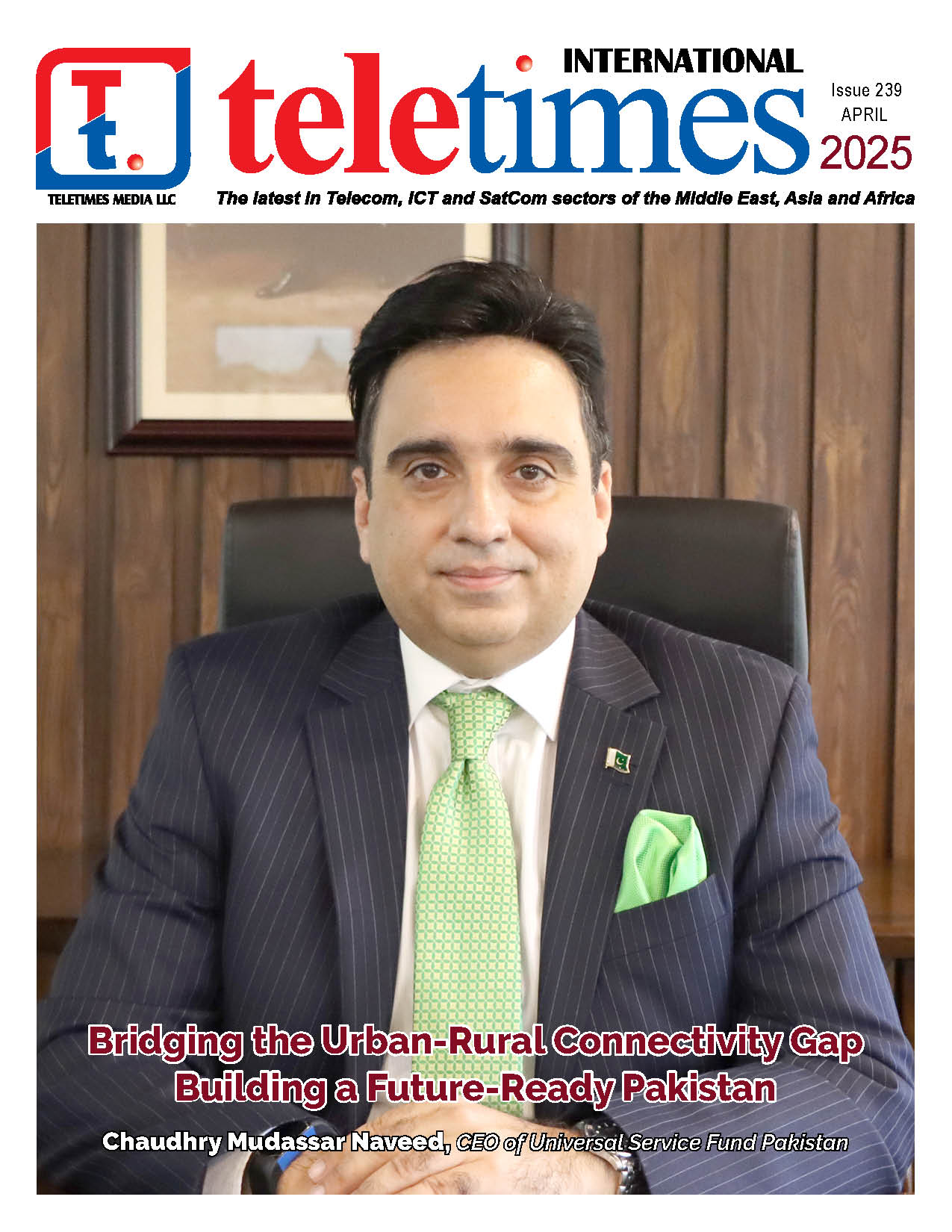Steven Yi, President of Huawei ME & CA, talks to Teletimes about the evolving telecommunications sector and the digital economy in the Middle East
Teletimes: The GCC has made impressive strides in the deployment of 5G technology, with significant developments expected in 5G-Advanced (5G-A). Can you discuss how these technologies are shaping ICT development and the digital economy in the Middle East and Central Asia regions?
Steven: Certainly. The advent of 5G has marked a new era in telecommunications, with around 28 networks launched commercially across the Middle East and Central Asia regions since 2019. This rapid adoption underscores the region’s commitment to leveraging cutting-edge technology to drive economic and social transformation. 5G and the upcoming 5G-A advancements are critical as they offer unprecedented connectivity speeds, drastically reduced latency, and expanded network capacity. These features are vital for supporting emerging technologies such as IoT, AI, naked-eye 3D, and augmented reality, which are integral to the digital economy’s growth.
With the superior speed, low latency, 5G and 5G-A’s impacts on consumer experience are evident. We envisage that as the naked-eye 3D, AR/VR devices and contents become more widely available and affordable, there will be a surge in 3D videos and AR/VR gaming traffic. Furthermore, new types of services such as New Calling, which integrates 5G features and can be used for video calling, real-time translation, and interactive menu functions, will further enhance users’ experience and bring additional digital services revenue to the ICT industry.
“Huawei has been collaborating with a number of industry and ecosystem partners to develop a 5G-enabled smart port. Here, the remote control of cranes and tally systems, Automated Guided Vehicles (AGVs), and intelligent CCTV will make port operations more efficient and safer”
The impact of 5G and 5G-A extends beyond typical telecommunications sectors, encompassing transportation, education, oil and gas, and government services, etc. For instance, Huawei has been collaborating with a number of industry and ecosystem partners to develop a 5G-enabled smart port. Here, the remote control of cranes and tally systems, Automated Guided Vehicles (AGVs), and intelligent CCTV will make port operations more efficient and safer. In healthcare, 5G facilitates real-time remote telemedicine, significantly enhancing patient care. In education, it enables interactive and immersive learning experiences that were previously impossible. Each of these applications contributes significantly to the broader goals of economic diversification and digital transformation in the GCC.
TT: Huawei has been instrumental in the developments of 5G and 5G-A in the region. What specific strategies has Huawei employed to support the adoption of these technologies?
Steven: Huawei recognises the transformative potential of 5G and 5G-A technologies and is committed to fostering their adoption across the GCC. Our approach is multi-faceted, involving close collaboration with telecom operators and industry partners, significant investments in research and development, and a strong focus on local capacity building. For instance, in 2023 alone, we invested $23.4 billion in R&D, which is over 23% of our total revenue. This investment fuels innovation and helps us develop and deploy advanced products and tailored solutions that meet the unique needs of the region.
Moreover, Huawei is committed to expanding a comprehensive ecosystem around these technologies, from terminal device communication modules, like redcap and passive IoT, to the cloud platform for hosting AI capability necessary for intelligent analysis. We work closely with players in the public and private sectors to implement a range of solutions, from advanced network infrastructure to industry-specific applications. This ecosystem approach not only enhances network capabilities but also enables a wide array of services and applications that capitalize on the speed and reliability of 5G and 5G-A networks.
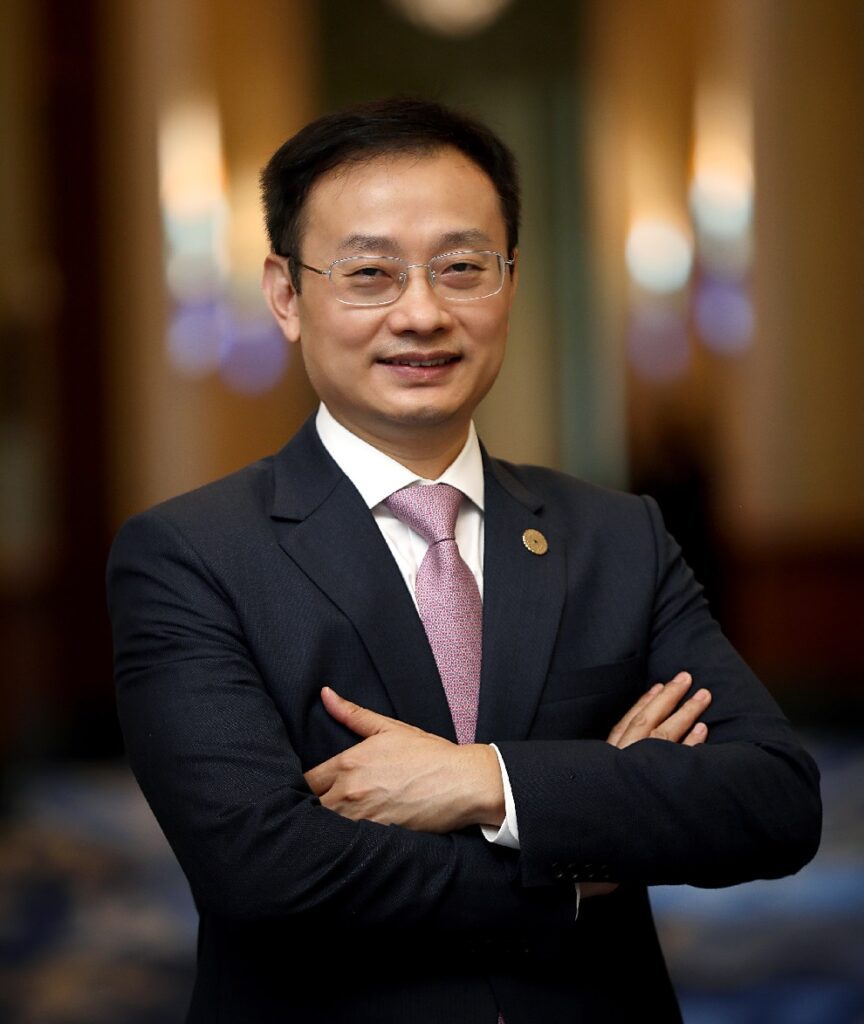
“The expansion of 5G and the evolution of 5.5G networks will amplify the proliferation of IoT and smart city applications and require the essential capability of AI and big data for driving innovation in areas like healthcare, public safety, and transportation”
TT: As we look to the future, what do you consider to be the most significant technological shifts in the region, and how is Huawei positioning itself with respect to these changes?
Steven: The future of technology in the region is incredibly promising, with several key trends, including AI, big data analytics, and cloud computing, poised to make a substantial impact. Huawei is actively aligning its strategy with these trends to drive further innovation and transformation.
The expansion of 5G and the evolution of 5G-A networks will amplify the proliferation of IoT and smart city applications and require the essential capability of AI and big data for driving innovation in areas like healthcare, public safety, and transportation. Leveraging our AI and big data capabilities, Huawei will be able to partner with governments and enterprises to implement smart city and e-government solutions. This includes traffic management systems, CCTV-based public security networks, AI-driven health services, autonomous vehicles, AI-managed remote control of heavy machinery in the port, and many more.
In the field of cloud computing, we foresee more investments in expanding cloud infrastructure and local data centres, which are crucial for supporting the digital transformation of businesses. These facilities provide secure, reliable, and compliant cloud services, which are essential for local enterprises looking to migrate their operations to the cloud.
Last year, we launched Huawei public cloud services in Saudi Arabia, increasing the number of Huawei Cloud regions to 30. This cloud will not only serve Saudi Arabia’s needs for digital transformation but also extend its benefits across the region and beyond.
The most transformative shift in the technology sector is undoubtedly the evolution of artificial intelligence (AI), highlighted by advancements in AI-generated creative content (AIGC) and large models. Huawei has been at the forefront of AI research and development for many years. To date, Huawei offers comprehensive AI solutions that span from chipsets to hardware platforms and software development frameworks. Aiming to diversify and enrich the ecosystem, Huawei joined the PyTorch Foundation in 2023 and has already collaborated with tens of thousands of developers and partners in developing AI applications and industry solutions. In mid-2023, Huawei unveiled its Pangu 3.0 large model, showcasing our capability to enhance a wide array of businesses and applications with innovative experiences through our full-stack AI and large model integration.
Additionally, as the digital landscape evolves, so does the complexity of cybersecurity threats. Huawei is at the forefront of developing comprehensive security solutions that safeguard critical infrastructure and sensitive data across all sectors.
TT: Speaking of cybersecurity, can you elaborate on the strategies Huawei has implemented to address the growing concerns around security in digital networks?
Steven: Absolutely. Cybersecurity is a cornerstone of our digital strategy. Huawei has established a rigorous global cybersecurity and privacy assurance system designed to meet the highest international and local standards. This system encompasses everything from the supply chain to end-user data protection.
“Huawei has established a rigorous global cybersecurity and privacy assurance system designed to meet the highest international and local standards. This system encompasses everything from the supply chain to end-user data protection”
We also participate in over 360 industry standards organisations and play a proactive role in shaping global cybersecurity standards. For example, at major industry events like GITEX and GISEC, we showcase our latest cybersecurity innovations, including solutions specifically designed to protect against ransomware and other emerging cyber threats.
Training and capacity building are also critical components of our strategy. Huawei provides extensive training and certification programs through our ICT Academy, equipping professionals across the region with the skills necessary to manage and combat the evolving landscape of cybersecurity threats.
TT: With sustainability being a global priority, how is Huawei assisting countries in the region achieve their environmental and sustainability goals?
Steven: Huawei is deeply committed to supporting sustainable development through our technology and innovations. Through our innovative approaches, Huawei has significantly contributed to the generation of 997.9 billion kWh of green power and the conservation of 46.1 billion kWh of electricity by the end of 2023, effectively cutting CO2 emissions by 495 million tons, the equivalent of planting 680 million trees!
We leverage our expertise in ICT to offer solutions that have a direct positive impact on the environment. For example, Huawei’s FusionSolar Smart PV solution has been widely adopted in various countries, optimising power generation and providing reliable green power. These technologies not only optimise power generation but also contribute significantly to reducing the carbon emissions associated with traditional energy sources.
Our efforts are dedicated to building technologies that utilize AI to minimise energy consumption, incorporate intelligent battery solutions, and advanced cooling technologies to reduce environmental impact. We design our ICT infrastructure—be it networks, IT products, or data centre infrastructure—with these end-to-end green technologies in mind. Consequently, our 5G and 5G-A networks are engineered to be significantly more energy-efficient than previous generations, playing a crucial role in reducing the overall energy usage of telecommunications networks. Huawei has already collaborated with a number of leading operators in the region to deploy low-carbon radio sites. Our partner event showcased one Net-Zero 5G site during COP28 last year.
TT: Finally, Huawei places a strong emphasis on nurturing local talent. What are the latest developments in Huawei’s talent development initiatives in the region?
Steven: Nurturing local talent is essential for the sustained growth of the digital economy. In 2024, Huawei expanded its talent development initiatives, which include collaborations with global organizations like UNESCO and ITU. These programs focus on providing young people with the skills and opportunities to lead community projects that address critical issues like the digital divide.
Moreover, our partnership with UNESCO’s Institute for Lifelong Learning aims to enhance the digital literacy skills of educators, impacting thousands of teachers and trainers across the region. We also support technological education for women and girls, sponsoring events like the European Girls’ Olympiad in Informatics to encourage more female participation in technology fields. Huawei places great importance on nurturing talent in the region. We firmly believe in enabling each country to achieve its digital vision and ensuring the sustainable growth of its digital economy, which is greatly dependent on the skills and capabilities of its talent. By fostering a culture of continuous learning, innovation, and professional growth, we empower regional talent to reach their full potential. We invest in training and development programs to equip local talents with the necessary tools and knowledge to excel in their roles. During the last decades, Huawei has developed 240 ICT academies and ten Huawei Authorized Learning Partners (HALPs) with education sectors and training Institutions, training 50,000 local ICT talents annually.


